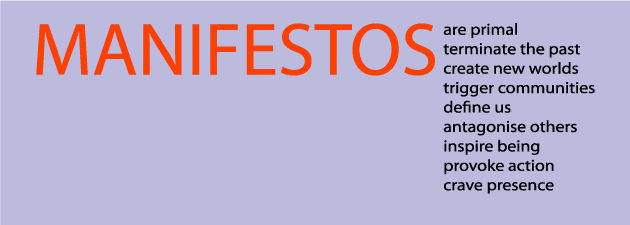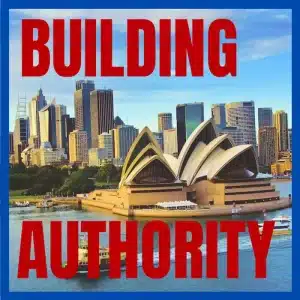Manifestos have a structure to them. And, here’s are our nine principles for creating yours. Click on the headings for a deeper explanation.
The Nine Manifesto Principles
1. Manifestos are primal
Manifestos are the first and most fundamental thing you should create. They’re your foundation stone upon which all other things are built. Create them, share them and plaster them everywhere. Start with a declaration – What do you want to create or make happen? JFK wanted to fly to the moon. And, whilst at the time many of his scientists didn’t think this was possible, the nation rallied and human history was changed forever.
2. Manifestos terminate the past
Manifestos draw a line in the sand. They say ‘this ends here. Now!’ And a new context, a new era and a new beginning starts. Do this effectively and your results will accelerate and your old problems will fade away. What are you ending or finishing? Yvonne Rainer’s No Manifesto famously said ‘No’ to 13 elements of dance and choreography.
3. Manifestos create new worlds
Manifestos are bold intentions. They don’t describe things, they declare them into existence. Take a stand, sharpen your purpose and incite the future. Martin Luther King’s I have a Dream speech described the world he thought was possible if racial discrimination could be ended. What does your ideal world look and feel like?
4. Manifestos trigger communities
Manifestos die in the dark. They’re public documents intended to rally people to your cause. This unites like-minded souls to birth new communities. Wikipedia’s five pillars is a simple way to define the type of community they wanted to create. In particular, Pillar number 4 that describes how people will relate to one another. What does yours look like?
5. Manifestos define us
Manifestos create belonging. They shout ‘This is who we are!’ If this calls to you it will become your anthem, badge of honour and new identity. Apple wanted us to be the Crazy Ones. They wanted to signal that boldness creates genius. And, if you wanted to be part of the movement you need to ‘Think Different’.
6. Manifestos antagonise others
Manifestos need enemies. When they appeal to everyone they lose all their power. Believers will cross your line in the sand, others will stay behind it. Magnify this difference to multiply your impact. When the founding fathers of the US penned their famous US Declaration of Independence they were committing treason against their British rulers. This was the spark that started the War of Independence. Whilst we’re not suggesting that you deliberately pick a fight, we are acknowledging that having a strong opinion may caused a mixed response from those around you.
7. Manifestos inspire being
Manifestos generate new meaning. They collect attitudes, align beliefs and provide a consistent worldview. This inspires new ways of being and calls forth new action. The Slow Movement started in Italy as a response to fast food, notably McDonalds. Locals saw it as an attack on their culture and wanted to highlight the value of local, regional, fresh and organic food. This philosophy sparked other movements. Slow parenting suggests you plan less activities for your children. Slow travel celebrates the entire journey – not getting there the fastest way you can. Slow cities or cittaslow aim to resist the sameness emerging in city growth and design. What’s your philosophy or attitude? Can it be easily applied to other areas of life?
8. Manifestos provoke action
Manifestos without action are merely words on a page. They exist to inspire decisive action, potent results and powerful change. The Repair Manifesto says recycling is not good enough. The creators of this manifesto want you to repair things to make your products live longer. What are the specific actions you want people to take?
9. Manifestos crave presence
Manifestoes matter. Whilst thoughts fade and speech can be silenced, manifestos are real. They live in many different physical forms so they can be easily shared. And, this keeps them alive. The best examples of this are the world’s great religions. Christianity, Judaism, Islam, Hinduism and Buddhism all present their philosophy in multiple ways. They all have individual rituals and practices, rules for living, specific beliefs, unique creation stories and a range of individual artifacts and physical objects. Think of the different ways that your followers can live your manifesto and your philosophy and give them the tools to do this daily.
Well, what do you think? What would you put in yours?
If you want some examples, head over to 1000manifestos.com to view our list.




